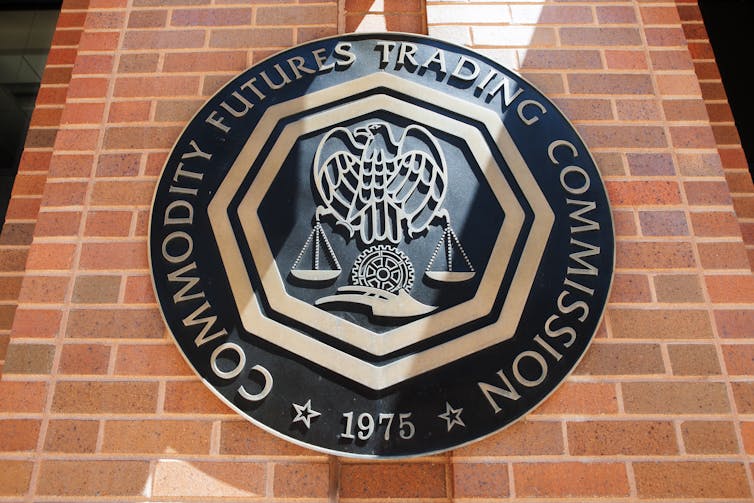The CFTC’s lawsuit alleges that Binance violated US derivatives laws by offering its derivative trading services to US customers without registering with the right market regulators. It says Binance has prioritised commercial success over regulatory compliance.
The CFTC has also levied charges against Binance’s founder and CEO, Changpeng Zhao (known as CZ) and former chief compliance officer Samuel Lim. They are charged with taking steps to violate US laws, including directing US-based “VIP customers” to open Binance accounts under the name of shell companies. The regulator has pointed to chat messages as evidence of CZ and Sim’s knowledge of various criminal groups using the exchange.
People visit Binance nearly 15 million times a week to trade on the over 300 cryptocurrencies it offers in more than 1,600 different markets. CZ is an outspoken advocate for cryptocurrencies and regularly tweets about the industry and his company. He even tweeted a link to his initial response to the recent CFTC charges, which he called “unexpected and disappointing”. Promising full responses in due time, he said:
Upon an initial review, the complaint appears to contain an incomplete recitation of facts, and we do not agree with the characterization of many of the issues alleged in the complaint.
Last year CZ’s tweets arguably contributed to the collapse of FTX, one of his company’s main rivals. Binance saw its market share grow following FTX’s collapse.
So, this charge – against not only a crypto giant but also the company of an outspoken industry advocate – has created further upheaval in a market that has already suffered multiple crises in the last year. Investors withdrew a reported US$1.6 billion (£1.3 billion) from Binance within days of the CFTC’s announcement of its charges. These outflows could continue if US regulators tighten their squeeze on crypto companies further, causing major players like Binance to shift focus to other jurisdictions.
Creeping oversight
The CFTC aims to “protect the public from fraud, manipulation, and abusive practices related to the sale of commodity and financial futures and options, and to foster open, competitive, and financially sound futures and option markets”. Previous actions by this regulator in 2021 against Tether and Bitfinex resulted in major fines and a loss of credibility for the crypto industry.
But a statement published at the time by one of the CFTC’s five commissioners, Dawn Stump, pointed out that the CFTC doesn’t actually have responsibility for regulating cryptocurrencies. She warned that these fines might “cause confusion about the CFTC’s role in this area”. She said the action was based on defining stablecoins (a type of cryptocurrency) as a commodity, but: “we should seek to ensure the public understands that we do not regulate stablecoins and we do not have daily insight into the businesses of those who issue such”.
These latest charges against Binance focus on its activities in derivatives – financial contracts that are linked to the value of an asset such as oil or, in this case, cryptocurrencies. This is a market the CFTC does regulate.
Another US financial regulator, the Securities and Exchange Commission (SEC), has also been ramping up its crypto oversight activities. As well as focusing on the Initial Coin Offering market, it saw a 50% increase in enforcement actions against digital asset companies last year compared to 2021.

Crypto market changes
So, Binance is up against two powerful US financial regulators. Some experts have warned that “significant regulatory action could prompt Binance to increasingly shift its business operations beyond the United States”. Certainly, the fact that Binance held a 92% share of the crypto market at the end of 2022 means it facilitates many transactions and offers a lot of liquidity to traders around the world, including in the US.
A trader’s capacity to find competitive prices when buying and selling, as well as sources of liquidity (or other people to trade with) would be affected by the loss of or pull back of one of the world’s top ten crypto exchanges. This would be bad news for retail and institutional investors who could be confronted with a smaller and potentially more expensive market as a result.
And even if the complaints and investigations by the CFTC and SEC take a while to conclude, as is likely, the US legislature may step in before that. A report published by the Financial Times days after the CFTC announcement alleges that Binance has hidden links to China for many years. A statement issued by the the exchange to the FT said this is not “an accurate picture of Binance’s operations” and that the paper’s sources were “citing ancient history (in crypto terms)”.
But recent actions against Chinese tech company Huawei and social media platform Tiktok indicate political leaders are keen to crack down on Chinese companies’ access to US technology systems and customer data. So any similar concerns could lead US politicians to start acting in this area as well.
Andrew Urquhart, Professor of Finance & Financial Technology, ICMA Centre, Henley Business School, University of Reading and Hossein Jahanshahloo, Assistant Professor in Finance, Cardiff University
This article is republished from The Conversation under a Creative Commons license. Read the original article.
![]()












Tu opinión enriquece este artículo: